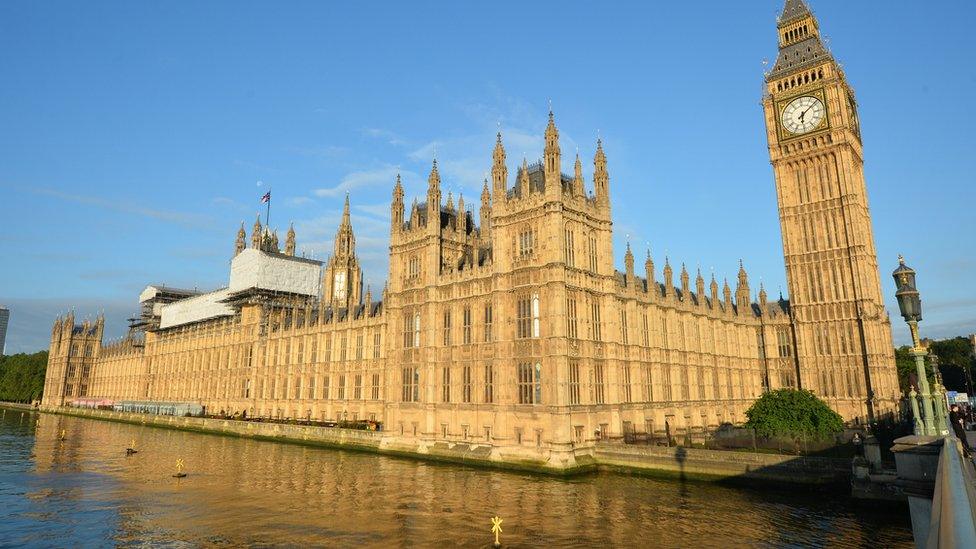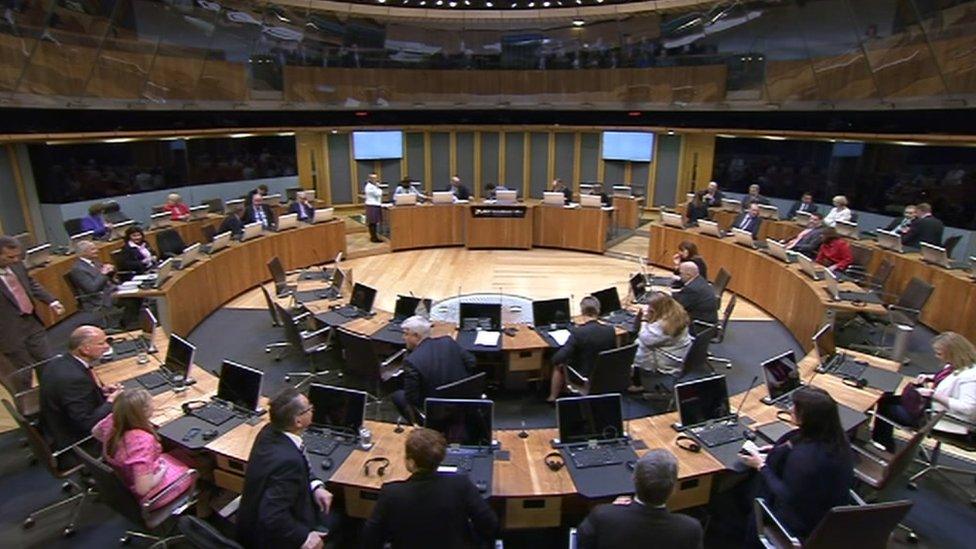Wales devolution date set for April 2018, Alun Cairns says
- Published

Alun Cairns said it would show "devolution has come of age"
New powers for the Welsh Assembly should come into force next April, Welsh Secretary Alun Cairns has said.
The Wales Act devolves extra powers over transport, energy, electoral arrangements and income tax rates.
It also defines what is under the control of Westminster, with everything else assumed to rest with the assembly - known as the "reserved powers" model.
The pledge comes amid a growing row between Wales and Westminster over replacement of EU laws after Brexit.
In a letter, external to the assembly's presiding officer Elin Jones outlining his preferred timescale, Mr Cairns said the reserved powers model gives a "clearer settlement and a well-defined division between devolved and reserved responsibilities".
He added that, as new devolved taxes also take effect on 6 April 2018, the timing "would deliver a strong message that Welsh devolution has come of age".

Elin Jones will consult AMs on the suggesting timing of new powers taking effect
The letter, written before a row broke out over the UK government's Brexit repeal bill, said: "We need to be clear about the model of Welsh devolution which applies as we prepare for our exit from the European Union.
"Implementing the reserved powers model in April 2018 provides us with sufficient time to make the necessary preparations before exit day."
The 2017 Wales Act has been controversial, with critics saying it imposes restrictions on what the assembly and Welsh Government can do.
But in January, AMs gave it their backing despite opposition from Plaid Cymru and UKIP.
Ms Jones will now consult with other AMs before responding to Mr Cairns about the timing.
On Sunday, she added her voice to those warning of a "constitutional crisis" if the repeal bill was not amended to ensure that EU laws in devolved areas of responsibility would be transferred to the assembly.
Mr Cairns has said the proposal for EU laws to be repatriated initially to Westminster was just a temporary measure to provide "certainty" for British businesses.
- Published31 January 2017

- Published18 January 2017

- Published13 June 2017

- Published8 March 2016

- Published16 July 2017

- Published13 July 2017

- Published11 July 2017

- Published14 July 2017
